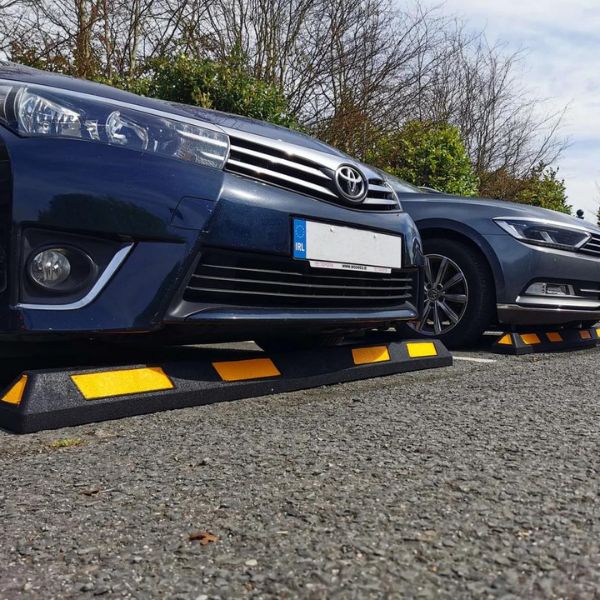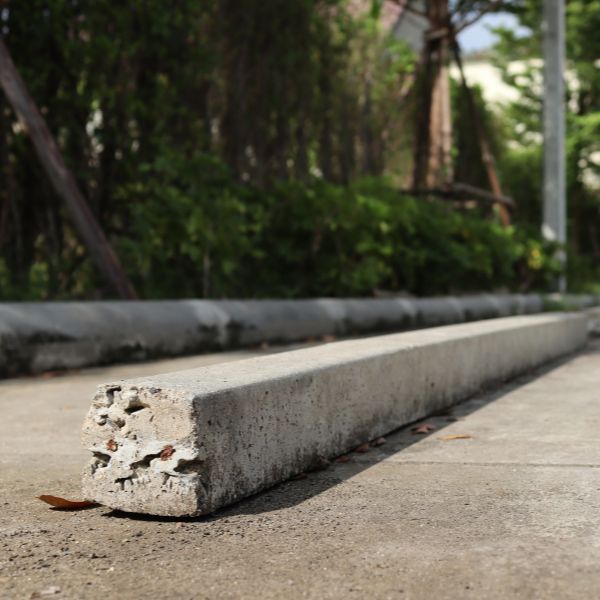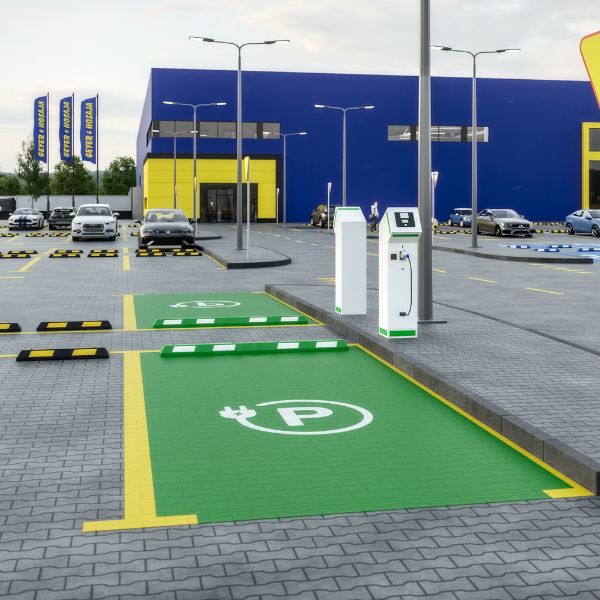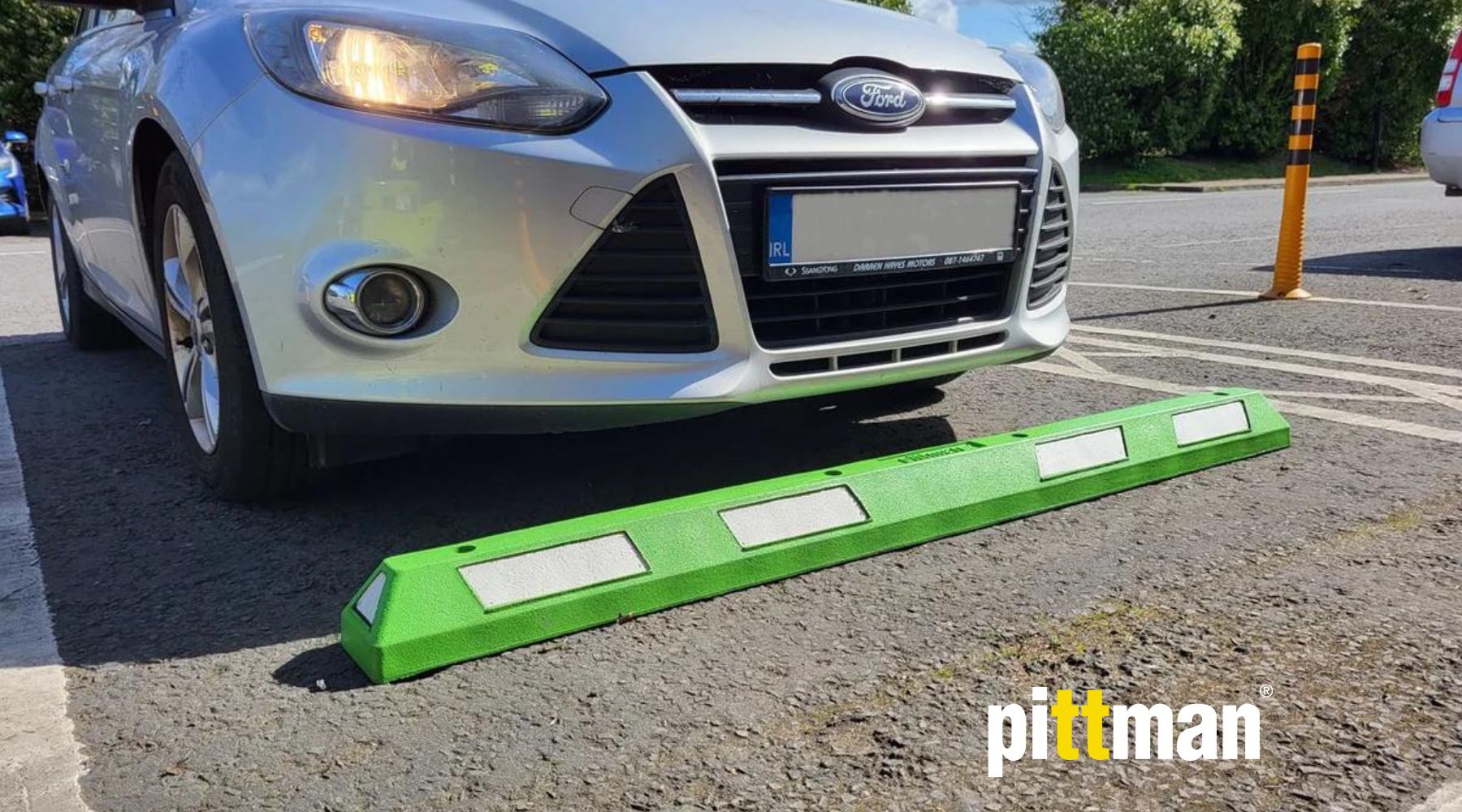Sustainable parking managment has become a key consideration for businesses and local authorities across the UK. Where cheaper materials have been used in the past they have not always been the most environmentally friendly. Now, with a bigger emphasis on climate change across Britain, more sustainable parking management methods are required to fall in line with government climate action.
The Environmental Impact of Wheel Stop Materials
When it comes to wheel stops there are generally three material choices to choose from - rubber, steel and concrete. While steel wheel stops are better suited to larger vehicles, they are not always the most economic or cost-effective option for cars, vans and LGVs.
Generally speaking, rubber is the most environmentally friendly material used for wheel stops. Rubber kerbs are typically made from recycled tyres, which means they will usually tie in with creating more sustainable parking management. This recycling process not only reduces waste but also requires less energy compared to the production of concrete wheel stops.
Concrete, on the other hand, has a higher carbon footprint due to its manufacturing process, which involves the emission of significant amounts of CO2. The labour side of installing concrete wheel stops also means more time is required on-site, increasing the amount of time machinery and work vehicles may be required on site.

Durability and Longevity
While they are much lighter than concrete, rubber wheel stops are much more durable in outdoor spaces. They are resistant to extreme weather conditions, do not chip or crack like concrete, and will maintain their appearance over time. This longer lifespan means fewer replacements, reducing the environmental impact associated with manufacturing, transport, and labour involved with new wheel stops.
The added flexible nature of rubber minimises damage to vehicles upon contact. Rubber will bend or countour slightly to vehicle wheels, providing all-round smoother parking. It makes them ideal for maximising the lifespan of public EV charging points where they can reduce the risk of impact damage to exposed charging equipment.

Installation and Maintenance
The installation process of rubber wheel stops is a lot more straightforward and less resource-intensive compared to concrete. They are lighter, easier to transport, and require less heavy machinery for installation.
Less machinery on-site means that carbon footprints can be greatly reduced if rubber kerbs are used instead. A single rubber wheel stop can usually be installed using just a drill, drillbit and the recommended fixings.
Rubber kerbs also mean lower labor costs and disruption to the car park. They also require minimal maintenance, a significant factor in reducing the overall environmental impact throughout their lifecycle.
Safety and Compliance
Rubber wheel stops are generally designed with safety in mind. Their visibility, often enhanced with reflective markings, provides better guidance for drivers, especially in low-light conditions. This increased visibility reduces the likelihood of vehicle impacts and boosts car park safety.
Rubber can also be much more versatile when it comes to reflective markings. Rubber can use recessed areas to house the markings and reduce the need for them to be replaced regularly. Ideally, markings should be mouled into the rubber rather than stuck on like cheaper alternatives.

Cost Benefits
While the environmental benefits are clear, it's important to note the cost advantages of choosing rubber wheel stops. The reduced need for replacements, lower installation costs, and minimal maintenance result in significant cost savings over time.
This cost-effectiveness is a compelling factor for businesses and local authorities aiming to manage their parking areas sustainably. With a lower need to replace or maintain wheel stops there is a lower need for additional machinery and labour.
Choosing rubber wheel stops for parking management projects
The choice of wheel stops plays a pivotal role in sustainable parking management. Rubber wheel stops, with their recycled content, durability, and reduced environmental impact, offer a far superior alternative to concrete in 2024.
By choosing rubber, businesses and local authorities not only contribute to a more sustainable future but also gain more economic benefits and enhanced safety in their parking areas. As the UK moves towards more environmentally friendly product use, the use of sustainable materials like rubber in everyday parking management contributes to a shared goal in reducing emissions in 2024 and beyond.






